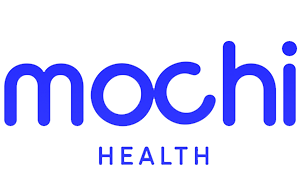Short Summary
Retatrutide is a new GLP-1 agonist medication designed for weight loss. It helps regulate appetite and reduce calorie intake through subcutaneous injections, showing promising results in clinical trials.
Retatrutide is shaping up to be a potential game-changer in weight loss and diabetes management, representing the next evolution in a rapidly advancing field of metabolic treatments. As a novel triple-receptor agonist simultaneously targeting GLP-1, GIP, and glucagon receptors, Retatrutide could significantly outperform current medications like Semaglutide (marketed as Ozempic and Wegovy) and Tirzepatide (known as Mounjaro and Zepbound) in promoting substantial weight loss and comprehensive metabolic health improvements. Recent clinical trials have already demonstrated remarkable efficacy, with Retatrutide leading to an average weight reduction of 24% of total body weight—a truly record-breaking result that surpasses all existing obesity treatments currently available on the market.
While still progressing through rigorous clinical development phases, this innovative drug is generating unprecedented excitement among researchers, endocrinologists, and healthcare providers specializing in obesity medicine. The question on everyone’s mind: Could Retatrutide be the next big breakthrough in obesity and diabetes care, potentially transforming millions of lives affected by these chronic conditions? Let’s explore the science behind how it works, its comprehensive benefits, and what the medical community currently knows about its future availability and therapeutic potential.
How Does Retatrutide Work?
Unlike existing GLP-1-based treatments that primarily target a single receptor pathway, Retatrutide activates three key complementary metabolic pathways that synergistically influence weight loss and glucose control, creating a multi-pronged approach to metabolic health:
GLP-1 (Glucagon-Like Peptide-1):
- Significantly reduces appetite and food intake by acting directly on brain centers that control hunger and satiety
- Substantially slows gastric emptying, keeping you feeling full longer after meals and reducing overall caloric intake
- Helps regulate blood sugar levels by increasing insulin release from pancreatic beta cells while simultaneously inhibiting glucagon secretion
- Improves neural signaling related to food reward pathways, potentially reducing cravings for high-calorie foods
GIP (Glucose-Dependent Insulinotropic Polypeptide):
- Enhances insulin production and cellular sensitivity to insulin, improving the body’s ability to process glucose
- It may help preserve valuable muscle mass while promoting selective fat loss, addressing a common concern with rapid weight reduction
- Supports the body’s metabolic flexibility, improving its ability to efficiently switch between carbohydrate and fat metabolism based on nutritional status
- Potentially reduces inflammation in adipose tissue, which may contribute to improved metabolic health beyond weight loss alone
Glucagon:
- Significantly increases fat burning and energy expenditure through thermogenesis and lipid oxidation pathways
- Specifically targets and reduces visceral fat (the particularly harmful fat that accumulates around vital organs)
- Effectively prevents metabolic slowdown and adaptive thermogenesis, a common physiological issue with extreme weight loss that often leads to weight regain
- Promotes the mobilization of stored fat to be used as energy, enhancing the body’s ability to reduce adipose tissue
The sophisticated combination of these complementary effects means Retatrutide not only reduces hunger signals and food intake but also actively increases metabolic rate and fat oxidation, giving it a unique mechanistic edge over current weight-loss medications that primarily focus on appetite suppression alone.
Our Recommended Weight Loss Medication Program


How Effective is Retatrutide for Weight Loss?
Clinical trials have shown truly unprecedented weight loss results for Retatrutide when compared to existing GLP-1-based medications, positioning it as potentially the most effective pharmacological intervention for obesity to date.
| Medication | Average Weight Loss | Trial Duration | Trial Duration |
|---|---|---|---|
| Retatrutide | 24% of body weight | 48 weeks | Continued weight loss without plateau; significant reductions in waist circumference |
| Tirzepatide | 20-22% of body weight | 72 weeks | Currently the most effective FDA-approved option; dual GIP/GLP-1 action |
| Semaglutide | 15% of body weight | 68 weeks | First-generation GLP-1 agonist with an established safety profile |
Why Does Retatrutide Work Better?
Retatrutide’s superior efficacy can be attributed to several key physiological mechanisms that differentiate it from previous generations of weight loss medications:
- It uniquely stimulates glucagon receptors, which actively promotes fat burning and energy expenditure rather than just suppressing appetite, addressing multiple aspects of weight management simultaneously
- Patients enrolled in clinical trials experienced continued and progressive weight loss for the entire 48-week study period, with no evidence of the plateau effect commonly seen with other weight loss interventions
- While other GLP-1-based medications primarily rely on appetite suppression and delayed gastric emptying, Retatrutide also substantially enhances basal metabolic rate, creating a more favorable energy balance equation
- The triple-receptor approach appears to create synergistic effects that exceed what would be expected from simply combining the individual benefits of each receptor pathway
- Preliminary data suggests improved body composition outcomes, with preferential reduction in adipose tissue while preserving lean muscle mass
If the ongoing Phase 3 trials confirm these impressive preliminary findings, Retatrutide could become not just incrementally better but fundamentally the most effective weight loss medication ever approved for clinical use, potentially approaching the efficacy of bariatric surgical procedures without the associated risks of invasive surgery.

Retatrutide for Diabetes: A Better Ozempic Alternative?
While Retatrutide is primarily being studied and developed for obesity management, its potential benefits for type 2 diabetes treatment are also remarkably promising. Early clinical data suggests that it may provide significantly better glycemic control than existing medications in the GLP-1 class, potentially revolutionizing diabetes management.
Potential Benefits for Diabetes Patients
- Greater and more sustained reductions in blood sugar (HbA1c levels) than both Ozempic (semaglutide) and Tirzepatide, potentially helping more patients reach target glucose levels
- Substantially improved insulin sensitivity across multiple tissues, making it considerably easier for the body to regulate glucose levels efficiently throughout the day
- Emerging data suggests significant cardiovascular benefits beyond glycemic control, potentially reducing the risk of heart disease, stroke, and other macrovascular complications common in diabetes
- Shows promising early results in potentially reversing non-alcoholic fatty liver disease (NAFLD) and non-alcoholic steatohepatitis (NASH), extremely common comorbid conditions in people with obesity and diabetes
- May address multiple components of metabolic syndrome simultaneously, including hypertension, dyslipidemia, and central obesity, providing comprehensive cardiometabolic risk reduction
If these impressive metabolic effects are confirmed in larger and longer-duration clinical trials, Retatrutide could likely follow a similar regulatory approval path as Tirzepatide, receiving an initial FDA approval for type 2 diabetes management before expanding its indications to include chronic weight management treatments.
Side Effects and Risks
As with all medications in the GLP-1 receptor agonist class, Retatrutide has some potential side effects that patients and healthcare providers should carefully consider when evaluating treatment options:
- Gastrointestinal effects, including nausea and vomiting (particularly common in the first few weeks of treatment during the dose titration period)
- Digestive disturbances manifesting as diarrhea or constipation, which may require symptomatic management
- Significantly reduced appetite, which is therapeutically beneficial but requires monitoring to ensure adequate nutritional intake
- Injection site reactions, including redness, swelling, or irritation at the location of subcutaneous administration
- Potential risk of pancreatitis, though this appears to be rare based on current data
- Theoretical concerns about thyroid C-cell tumors are based on rodent studies of similar medications, though human relevance remains unclear
However, since Retatrutide also activates glucagon receptors alongside GLP-1 and GIP, some patients in clinical trials experienced somewhat higher rates of nausea compared to other GLP-1 medications, particularly during the initial titration phase.
The encouraging news for potential patients? Most side effects tend to diminish significantly over time as the body develops tolerance and adapts to the medication, with many early side effects resolving within 4-8 weeks of consistent use. Proper dose titration protocols appear to mitigate these adverse effects.
When Will Retatrutide Be Available?
Retatrutide is currently progressing through the final stages of clinical development, with experts estimating that FDA approval could potentially happen by late 2025 or early 2026 if the ongoing trials continue to demonstrate strong efficacy and acceptable safety profiles.
Current Development Timeline
✅ Phase 1 trials completed – Established basic safety and dosing parameters in healthy volunteers
✅ Phase 2 trials completed – Demonstrated significant weight loss, improved body composition, and superior glucose control across multiple dose cohorts
✅ Phase 3 trials underway – Multiple large-scale studies testing long-term safety, effectiveness across diverse populations, and comparative efficacy versus existing treatments
⏳ FDA submission expected – Likely in mid-2025 based on current trial progress
⏳ FDA approval anticipated – Potentially in late 2025 or early 2026, depending on regulatory review timelines
If the current unprecedented demand for GLP-1-based weight loss medications continues to rise and the public health burden of obesity remains acute, there is reasonable speculation that Retatrutide may be considered for accelerated review or fast-tracked for approval, similar to how Tirzepatide (Zepbound) and Semaglutide (Wegovy) received expedited regulatory pathways.
Conclusion: Is Retatrutide the Future of Weight Loss?
Retatrutide represents a potential paradigm shift that could fundamentally redefine the landscape of pharmacological weight loss interventions. With its unique three-pronged mechanism of action that simultaneously suppresses appetite, enhances metabolic rate, increases fat metabolism, and maintains energy expenditure even during weight loss, it has the remarkable potential to become the most effective prescription weight-loss medication developed to date.
🔹 If you’re seeking an FDA-approved treatment option available right now, Tirzepatide (marketed as Zepbound for weight management) or Semaglutide (sold as Wegovy) currently represent your most effective evidence-based pharmaceutical options.
🔹 However, if you’re looking toward the future horizon for potentially the most powerful weight-loss drug yet developed, Retatrutide is unquestionably the investigational treatment to watch closely as it progresses through final clinical testing.
Would you consider transitioning to Retatrutide once it receives FDA approval and enters the market? We’d love to hear your thoughts on how this emerging medication might fit into your health journey!

Can Personalized Care Enhance Your Weight Loss?

The Digital Age of Weight Loss Prescriptions
FAQ
- What is Retatrutide?
Retatrutide is a medication that aids in weight management by mimicking hormones that regulate hunger.
- How is Retatrutide administered?It is given through subcutaneous injections.
- Who can use Retatrutide?It's suitable for individuals seeking medical assistance for obesity.
- What are the benefits of Retatrutide?It significantly reduces body weight when used alongside a healthy lifestyle.




